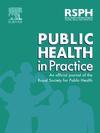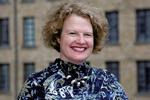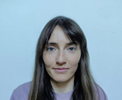School is more than a place to learn: An intersectoral assessment of adolescent well-being prior to and after the COVID-19 pandemic in the WHO European Region
13:00 - 14:00 GMT, Wednesday 22nd October 2025
Chaired by: Professor Ingrid Wolfe OBE, Professor of Paediatrics and Child Population Health, Consultant Paediatric Population Medicine, Kings College, London
Speakers:
- Dr. Nicola Gray, Co-Chair, UNESCO Chair ‘Global Health & Education’
- Mary Cronin, Specialty Registrar in Public Health
- Dr. Maximilian Limburg, Specialty Registrar in Public Health

A webinar supporting the development of a new WHO/UNICEF regional strategy for Child and Adolescent Health in Europe and Central Asia, as part of our Public Health in Practice Special Issue
This webinar will present a research study that examined changes in adolescent well-being across the WHO European Region following the Covid-19 pandemic. Adolescent well-being was assessed using the UN H6+ framework, which includes: 1) Good health and optimal nutrition, 2) Connectedness, positive values, and societal contribution, 3) Safety and a supportive environment, 4) Learning, competence, education, skills, and employability, and 5) Agency and resilience. Secondary analysis of data from two large datasets concerning adolescents, the Health Behaviour in School-aged Children (HBSC) Survey and the Programme for International Student Assessment (PISA), revealed a decline in well-being across European countries from 2018 (pre-pandemic) to 2022 (post-pandemic). Additionally, the study highlighted a significant widening of educational inequalities in the aftermath of the pandemic.
Key Issues for Debate:
- How can we prevent existing inequalities in educational attainment from widening?
- How can we improve our data collection strategies about school closure impact for future health crises?
- What would an intersectoral strategy on adolescent well-being look like, to minimize the impact of future emergency measures?
Image used from PMNCH (Partnership for Maternal, Newborn and Child Health)


Chair: Professor Ingrid Wolfe OBE, Professor of Paediatrics and Child Population Health, Consultant Paediatric Population Medicine, Kings College, London
Professor Ingrid Wolfe is Deputy Chief Medical Officer (Population Medicine) at Guy’s & St Thomas’ NHS Foundation Trust, a Consultant in Paediatric Population Medicine at Evelina London Children’s Health, and Professor of Paediatrics and Child Population Health at King’s College London. She leads a clinical-academic group (CHILDS) working to advance and apply knowledge for improving child health. Alongside this, Ingrid is Director of King’s Health Partners Women’s and Children’s Health, Director of NIHR Applied Research Collaborative (ARC) South London, and co-Chair of the British Association for Child and Adolescent Public Health.
Ingrid is qualified in paediatrics and public health, enabling her to be a children’s doctor with a very broad perspective. She has on-the-ground insight from clinical practice, and an understanding of the population from public health. These two aspects come together in her NHS and academic work focusing on improving child health through strengthening healthcare, health systems, and informing policy in the UK and Europe. She leads several research programmes designing and testing interventions to improve child health, publishing and speaking widely in academic, clinical, and policy settings. She was awarded an OBE for services to children’s health in 2016.
Speakers:
Dr. Nicola Gray, Co-Chair, UNESCO Chair ‘Global Health & Education’

Nicola is Reader in Medicines and Health at the University of Huddersfield. She is a pharmacist by training, with expertise in children and young people’s health, and research interests in health literacy and lifelong health learning pathways. She brings professionals together to explore opportunities for better intersectoral working across health and education to promote well-being in schools.
Mary Cronin, Specialty Registrar in Public Health

Currently based at the Institute of Population Health, University of Liverpool. Mary has previous experience working in local government and with the Field Epidemiology Service at Public Health England (now part of the UK Health Security Agency). She has a strong interest in the role of policy in reducing health inequalities.
Dr. Maximilian Limburg, Specialty Registrar in Public Health

Max is an Honorary Research Associate, based at the Institute of Population Health, University of Liverpool. His perspective is shaped by his background in clinical medicine and public health practice in local government. He is passionate about understanding inequalities faced by young people and the impact on their aspirations, as well as utilising the benefits of international public health collaboration.
